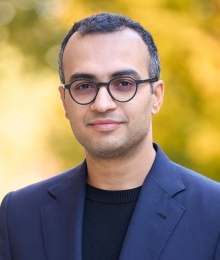C. Global Legal Thought
Course Information
- Course Number
- L9163
- Curriculum Level
- Upperclass
- Areas of Study
- Constitutional Law, Human Rights, Interdisciplinary Legal Studies, International and Comparative Law, Legal History and Law and Philosophy
- Type
- Colloquium
- Additional Attributes
- New Course
Section 001 Information
Instructor
 Madhav Khosla
Dr. B.R. Ambedkar Professor of Indian Constitutional Law
Madhav Khosla
Dr. B.R. Ambedkar Professor of Indian Constitutional Law
Section Description
The Colloquium in Global Legal Thought will meet every week for two hours throughout the course of the term. Its principal goal will be to expose students to current scholarship in global, international, and comparative legal thought, broadly construed. It will also include scholarship on American law on select themes. The Colloquium will include a series of guest speakers for particular sessions, who will present and discuss works in progress with students and faculty. In other sessions, students will read work by the guest speakers. For Spring 2025, the speakers will include Aslı Ü. Bâli (Yale Law School), Maggie Blackhawk (NYU School of Law), Cora Chan (University of Hong Kong), David Dyzenhaus (University of Toronto), Idriss Fofana (Harvard Law School), Oona A. Hathaway (Yale Law School), and Aziz Rana (Boston College).
- School Year & Semester
- Spring 2025
- Points
- 2
- Method of Evaluation
- Paper
- J.D Writing Credit?
- Minor (automatic)
- LLM Writing Project
- Upon consultation
Learning Outcomes
- Primary
-
- At the end of the course, students will have acquired understanding of and/or facility in jurisprudential considerations in legal analysis
- At the end of the course, students will have acquired understanding of and/or facility in the historical development of law and legal institutions
- At the end of the course, students will have acquired understanding of and/or facility in comparative law analysis of legal institutions and the law
- At the end of the course, students will have acquired understanding of and/or facility in use of other disciplines in the analysis of legal problems and institutions, e.g., philosophy; economics,other social sciences; and cultural studies
- At the end of the course, students will have acquired understanding of and/or facility in academic research and writing
Course Limitations
- Instructor Pre-requisites
- None
- Instructor Co-Requisites
- None
- Requires Permission
- No
- Recommended Courses
- None
- Other Limitations
- None